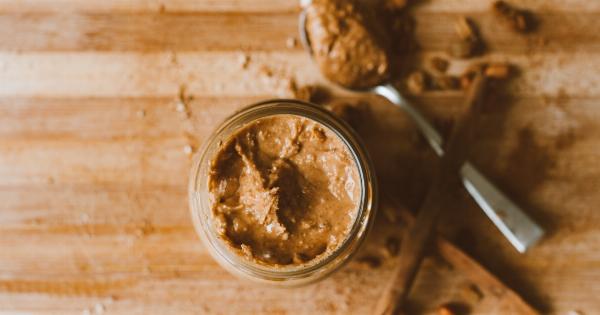Peanut butter is a beloved spread enjoyed by people all over the world. Whether it’s in a sandwich, used as a dip, or added to a recipe, peanut butter is versatile and delicious.
But did you know that peanut butter also comes with a range of surprising health benefits? In this article, we will explore the many ways peanut butter can boost your health.
1. Rich in Nutrients
Peanut butter is packed with essential nutrients that are beneficial for your overall health. It is an excellent source of protein, healthy fats, fiber, vitamins, and minerals.
Just two tablespoons of peanut butter contain around 8 grams of protein, which is crucial for muscle growth and repair.
2. Heart-Healthy
Contrary to popular belief, peanut butter can be good for your heart. It is rich in monounsaturated fats, which help lower bad cholesterol levels and reduce the risk of heart disease.
Additionally, the presence of antioxidants like resveratrol in peanut butter promotes heart health.
3. Aids Weight Loss
Despite being calorie-dense, peanut butter can actually help with weight loss. The combination of protein and healthy fats in peanut butter keeps you feeling full for longer, reducing cravings and the likelihood of overeating.
Including peanut butter in your diet can help you maintain a healthy weight.
4. Boosts Energy
If you are in need of an energy boost, peanut butter is an excellent choice. It is high in calories and provides a good dose of healthy fats, proteins, and carbohydrates.
These nutrients are the perfect combination to sustain energy levels during workouts or a busy day.
5. Manages Blood Sugar
Peanut butter has a low glycemic index, making it suitable for managing blood sugar levels.
The combination of healthy fats, fiber, and protein in peanut butter slows down the absorption of sugar into the bloodstream, preventing spikes in blood sugar levels.
6. Promotes Brain Health
The nutrients in peanut butter support brain health and cognitive function. The high levels of vitamin E help protect the brain against oxidative stress, which is known to contribute to cognitive decline.
Additionally, the niacin content in peanut butter has been linked to a reduced risk of Alzheimer’s disease.
7. Supports Gut Health
Peanut butter contains a good amount of fiber, which is essential for a healthy digestive system. Fiber promotes regular bowel movements, prevents constipation, and supports the growth of beneficial gut bacteria.
Including peanut butter in your diet can help maintain a healthy gut.
8. Boosts Immunity
The presence of various vitamins and minerals in peanut butter helps strengthen the immune system. Vitamin E, in particular, acts as an antioxidant that protects the cells from damage and supports the production of immune cells.
Regular consumption of peanut butter can help fend off illness and infections.
9. Enhances Muscle Health
The protein content in peanut butter is crucial for maintaining and building muscle mass. Protein is necessary for repairing and rebuilding muscle fibers after exercise or physical activities.
Including peanut butter in your diet can aid in muscle recovery and enhance overall muscle health.
10. Reduces the Risk of Gallstones
Research has shown that consuming peanut butter in moderation can reduce the risk of developing gallstones. The healthy fat content in peanut butter helps regulate bile secretion, preventing the formation of gallstones.
However, it’s important to consume peanut butter in moderation as excessive intake may have adverse effects.



























